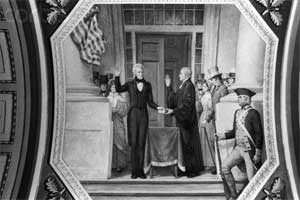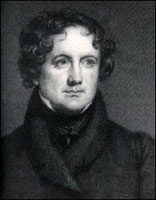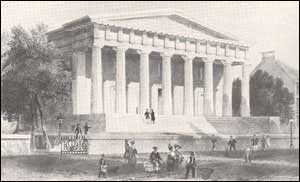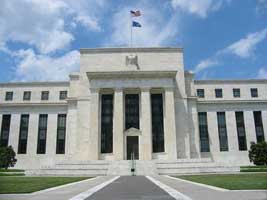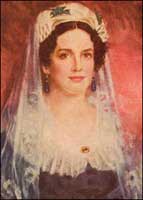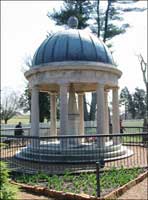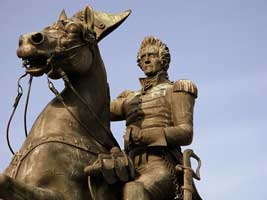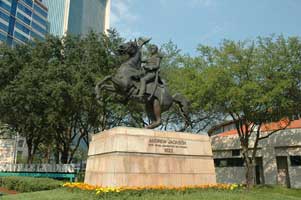March 15, 1767 - June 8, 1845. President of the United States from 1829 to 1837. General Jackson was a CITIZEN soldier–no West Point Military Academy for him. The brave army that fought by his side and saved the United States were CITIZEN soldiers. They were the ARMED PEOPLE or MILITIA of the United States whose right to bear arms shall NOT be infringed. (2nd Amendment to the U.S. Constitution). The British invaders were veterans of the Napoleonic Wars and the best trained army in the world.
According to a document found on General Pakenham after the battle, the British were to hold Louisiana until the Spanish were ready to take it back:
Spain would NEVER again be ready to take possession of Louisiana so that territory was to be joined to Canada and become part of the British Empire in the New World.
It was the most lop-sided victory in the history of warfare because a small ragtag militia had defeated the most professional army in the world. By this miraculous Divine intervention, the young U.S. Republic was saved from the threat of foreign invasion until the Civil War.
During the 19th century, January 8 was a BIG holiday and celebration in the U.S. Almost like the 4th of July in January. The War of 1812 to make Louisiana part of the British Empire!!President Jackson's parents were born in Carrickfergus, County Antrim, Ireland. His parents emigrated to the U.S. in 1765. If the family had waited 2 more years, President Jackson would have been born in Ireland. He was one of the greatest sons of St. Patrick that ever lived. On June 18, 1812, war broke out between Britain and the U.S. The eastern seaboard of the U.S. was invaded and Washington City was burned to the ground. This was just a diversionary tactic or feint as the main blow was aimed at NEW ORLEANS–the key to the LouisianaTerritory.
These attacks were just FEINTS to disguise their real objective: New Orleans–the key to the Louisiana Territory!! By December 1814, a huge armada of British ships and over 18,000 of the best soldiers in the world approached the city of New Orleans. New Orleans was the key to the mighty Mississippi River and the gateway to the Louisiana Territory. They felt supremely confident, and looked forward to a quick victory, and then as a reward the BOOTY and BEAUTY of the city of New Orleans!! The British were filled with contempt for the performance of the U.S. citizen soldiers and they referred to them as "Dirty Shirts." President James Madison dispatched general Andrew Jackson to forestall the invasion. General Jackson led a force of about 5,000 militia comprising Tennessee and Kentucky volunteers, free blacks, and assorted Creoles and Indians. As the British government was conducting "peace negotiations" with the U.S. in Belgium, a huge armada was secretly assembling in Jamaica ready for the invasion of New Orleans. Christian Prime Minister was assassinated just before the war began!!On May 11, 1812, Spencer Perceval, the Catholic Christian Prime Minister of Great Britain, was brutally slain by an assassin from Liverpool, England, named John Bellingham. He left a grieving widow and 12 children.
Spencer Perceval was brutally gunned down in the very Houses of Parliament on May 11, 1812. Prime Minister Perceval was a lot like General Jackson in matters of personal and public conduct. The Prime Minister was very patriotic and loved his country. Though he had a wife and 12 children to support, he refused to use the office of Prime Minister to enrich himself. King George III called him one of the most honest men that he ever knew. Normally, the Jesuits like to use the cup of Borgia to get rid of unwilling world leaders. In this case, it was a public execution as a warning to any future uncooperative Prime Ministers. As expected, the assassin John Bellingham, was tried and hung within a week, because DEAD MEN TELL NO TALES!! Top U.S. general was on the Spanish payroll!!General Jackson was surrounded by traitors in very high places, who, for the sake of filthy lucre, were more than glad to help the British acquire Louisiana. Even one of his own generals named David Morgan was a British spy.
The British were supremely confident of success because the top U.S. general on the eastern front was also a paid agent of Spain. Wilkinson took an oath of loyalty to the king of Spain and was involved in several schemes to destroy the infant Republic. In the Spanish archives in Havana, Cuba, he was known as "Agent 13." He was also married to Anne Biddle of the Philadelphia banking family. Anybody who threatened to expose him was brutally murdered, including Meriwether Lewis, of the famous Lewis and Clark Expedition to the Pacific Ocean. The Louisiana Territory was just purchased from France by the United States. This Territory was initially claimed by France, but France secretly ceded it to Spain in 1762. In the Treaty of Paris in 1763, the British ratified the treaty giving Spain hegemony over the vast area.
Spain . . . and England . . . were furious when they found out that Napoleon had sold the vast territory to the U.S. Spain was a broken reed and could do nothing militarily but England had the most powerful navy in the world. The British never recognized Napoleon's right to acquire the Louisiana Territory from the Spanish and then sell it to the U.S. They were determined to conquer it and then hand it back to Spain. That was their modus operandi . . . until they met general Jackson. President Jackson versus the U.S. BankPresident Jackson faced a far deadlier enemy than the British muskets when he reached the White House. That enemy was the moneychangers of the U.S. Bank. A central Bank was part of the scheme by the Spanish to strangle the British colonies after their separation from Great Britain. The first Bank's charter was drafted in 1791 by the Congress, and signed by George Washington.
The people loved the hero of the battle of New Orleans and elected him to the Presidency in the year 1828. He served his country in that high office for 8 years. Little did he know before taking the oath of office that he would face a far more dangerous enemy than ever he faced from the British muskets. That ferocious enemy was the MONEY POWER represented by the U.S. Bank.
Biddle was a British spy . . . and her best brain. He graduated from the University of Pennsylvania at the age of 13, and from Princeton at 17. He mastered the secret science of paper money and banking at an early age. He was head of the 2nd Bank of the U.S. With many Congressmen and Senators financially beholden to him, he wielded great political power. He deliberately created a banking panic and a depression for the purpose of frightening the voters and blaming it on President Jackson. Biddle was later arrested and charged with fraud, but his powerful protectors shielded him from justice . . . in this life. President Jackson's unflinching determination and unwavering patriotism prevailed against Biddle and his Bank. President Jackson called the Bank a monster and was determined to pull all its teeth. He said:
And
our hero did exactly as he promised. When he left office, the U.S. had
a Constitutional currency consisting of silver and gold coins. Our hero
called paper money "RAG MONEY" and this is what he said about
it:
The
"Federal" Reserve Bank is just the resurrected monster that
President Jackson slew in 1836.
The "Federal" Reserve subsidiary of the Bank of England!!The direct successor of this corrupt bank that President Jackson terminated is called the "FEDERAL" Reserve Bank. It is not FEDERAL and it has no reserves. It actually lends money at USURY to the U.S. government, and as collateral, the U.S. government collects INCOME TAX to repay the loans. Of course the corrupt bank only creates the PRINCIPAL . . . not the usury . . . so the loans can NEVER be repaid
Mark Carney is governor of the Bank of England. Fake "Jew" Janet Yellen is head of the Federal Reserve Bank and answers to Mark Carney.
The Jewish Messiah said that those who called themselves "Jews" are in reality the synagogue of Satan (Revelation 2:9, 3:9). The spies and conquering army of Gog and Magog are human even though their spiritual father is Satan himself. As such they have to eat so they need to be paid. Mark Carney watches over his U.S. fiefdom from his spy headquarters in London. The President's LadyEven before the Battle of New Orleans, Andrew Jackson faced a host of foes all sent by the British to kill our great HERO. He survived them all thanks to a devoted and praying wife.
They both sleep together at The Hermitage until the great Resurrection morning. Behind every great man is a GREAT woman ....Rachel Jackson was the faithful wife of President Jackson. She was the victim of a failed marriage in a time when a divorce was almost impossible to obtain. In order to stop her husband from reaching the White House, the most vicious rumors were spread concerning her former marriage. She literally died of a broken heart just before her husband's inauguration. President Jackson said this about his beloved Rachel:
Her life story was written by award wining author Irving Stone in a book entitled The President's Lady. It was made into a Hollywood movie in 1953 starring Charlton Heston and Susan Hayward.
Before the Civil War, January 8th was a BIG holiday and celebration in the United States . . . almost like the 4th of July in January....It's time to restore this great anniversary to its former glory. Vital Links The conversion of Andrew Jackson to Christ. The Hermitage—home of our hero President. Biography of President and Mrs. Jackson from the White House. President Jackson hated paper money—read his farewell address President Jackson's Veto Message Regarding the Bank of the United States. References Anonymous. Assassinations that Changed History. Marshall Cavendish, London & New York, 1975. Buell, Augustus C. History of Andrew Jackson: Pioneer, Patriot, Soldier, Politician, President. in 2 volumes, Charles Schribner's Sons, New York, 1904. Brands, H.W. Andrew Jackson. His Life and Times. Doubleday & Co., New York, 2005. Gillen, Mollie. Assassination of the Prime Minister. "The Shocking Death of Spencer Perceval." St. Martin's Press, New York, 1972. Gray, Davis. Spencer Perceval. The Evangelical Prime Minister. Manchester University Press, 1963. Griffin, G. Edward, The Creature from Jekyll Island: A Second Look at the Federal Reserve. American Media, P.O. Box 4646, Westlake Village, California, 1998. Govan, Thomas Payne. Nicholas Biddle: Nationalist and Public Banker. University of Chicago Press, 1959. Gouge, William, A Short History of Paper Money and Banking in the United States. Philadelphia, 1833. Greig, G. R. Campaigns of the British Army at Washington and New Orleans. Rowman & Littlefield, Totowa, NJ., 1972. (First published London, 1827). Jacobs, James Ripley.Tarnished warrior, Major-General James Wilkinson. The Macmillan Co., New York, 1938. Parton, James. Life of Andrew Jackson (in 3 volumes). Mason Bros., New York, 1861. Remini, Robert. The Life of Andrew Jackson. Harper & Row, New York, 1988. Schlesinger, Arthur M, Jr. The Age of Jackson. Little, Brown & Co., Boston, 1953. (Winner of the Pulitzer Prize for History) Stone, Irving. The President's Lady. Doubleday & Co., Garden City, New York, 1951. Walbert, M. W. The Coming Battle: A Complete History of the National Banking Money Power in the United States. W. B. Conkey Company, Chicago, 1899. Walpole, Spencer. The Life of the Rt. Hon. Spencer Perceval (in 2 volumes). Hurst & Blackett Publishers, London, 1874. Online Book: Wall St. and the Rise of Hitler. by Anthony C. Sutton. Online Book: Wall St. and the Bolshevik Revolution, by Anthony C. Sutton. President Jackson's favorite books. We are compiling a list of our Hero's favorite books. It is difficult because many of them are out of print and hard to find. Of course the King James Bible was his most beloved tome. Caesar's Commentaries. The Scottish Chiefs. by Jane Porter. first published in 1809. The History of the American Revolution (in 2 volumes). by David Ramsey, first published in 1789, reprinted by Liberty Classics, Indianapolis, Indiana, 1990. The Art of War, by Chevalier de la Valiere, published in Philadelphia in 1776. Copyright © 2015 by Patrick Scrivener |
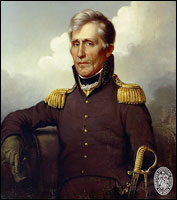
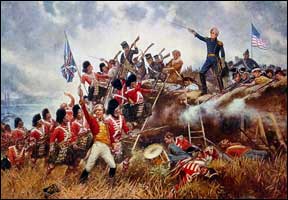
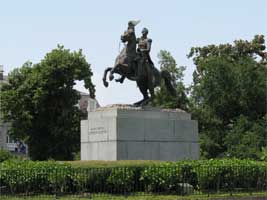
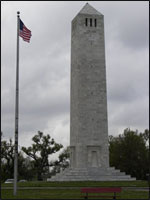
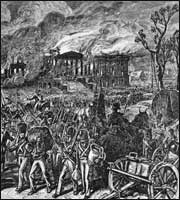
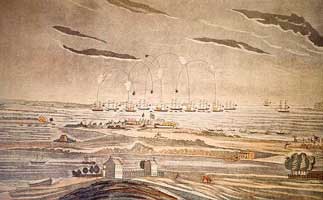
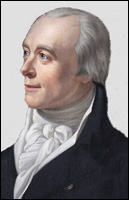
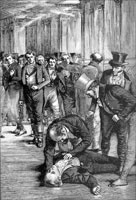
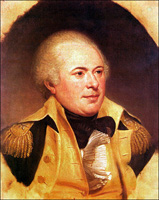
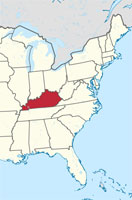
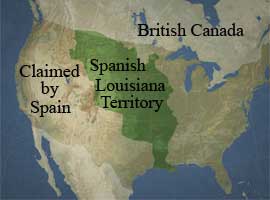
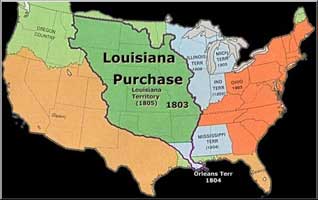
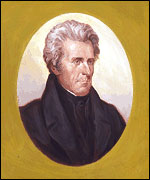 President
Andrew Jackson
President
Andrew Jackson 